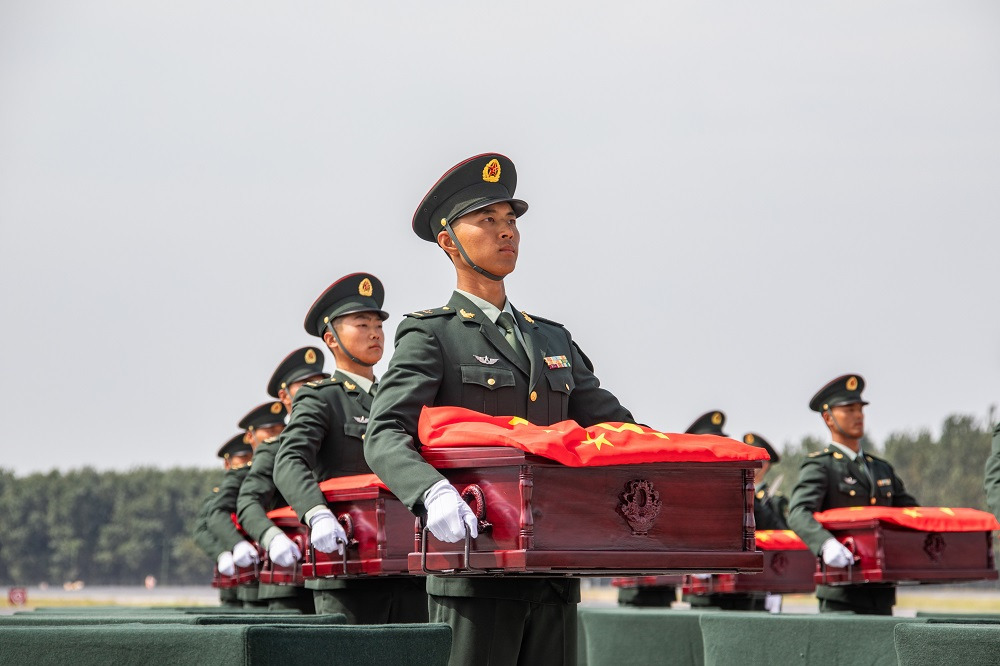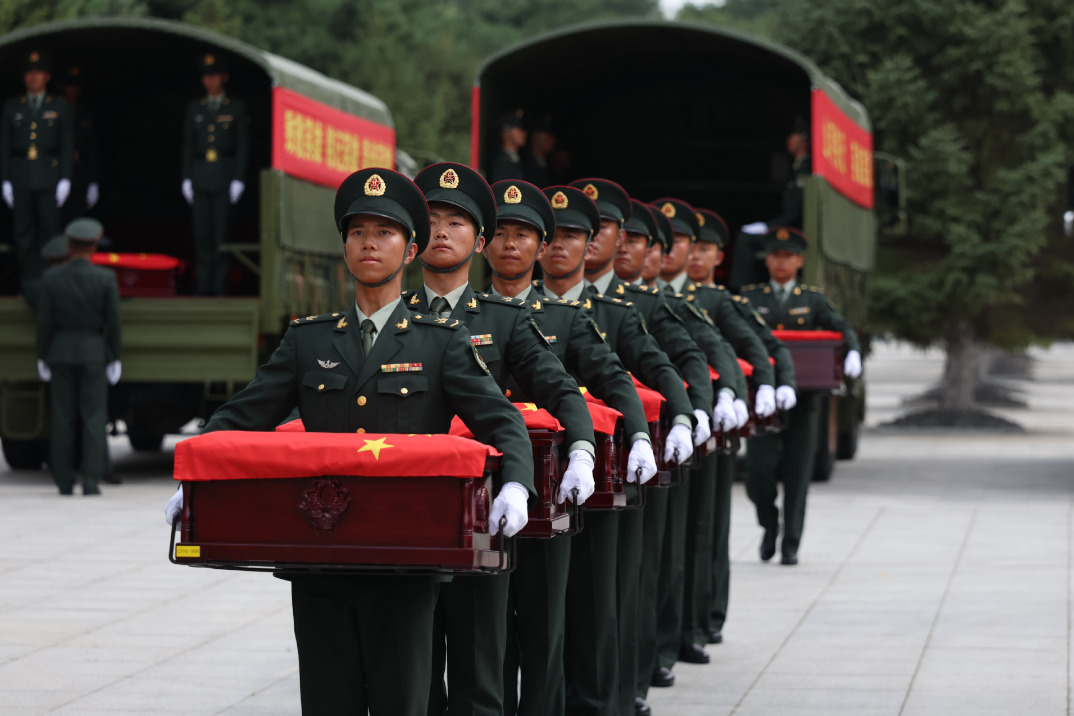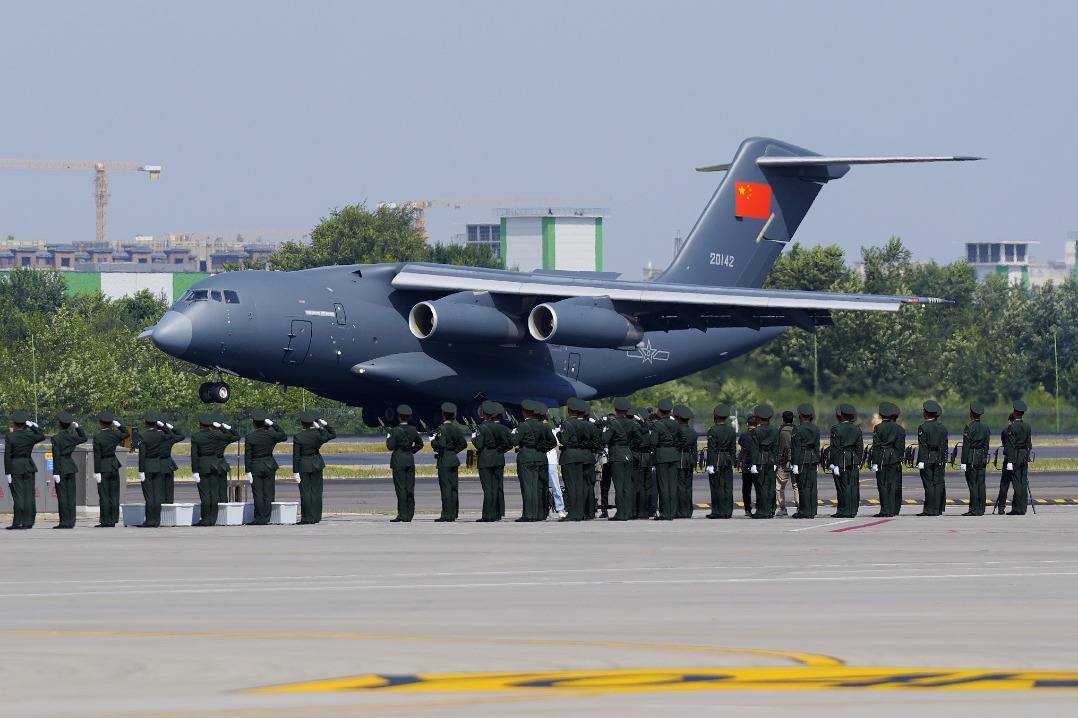China favors peace but is not afraid of war


Seventy years ago, the Chinese People's Volunteers made the historic decision to enter the Democratic People's Republic of Korea to fight the War to Resist US Aggression and Aid Korea (1950-53) in order to safeguard peace and thwart expansionism. Despite the many odds including the military disparity between the US-led forces and the Chinese-Korean side, the Chinese People's Volunteers fought with their lives to resist US aggression and prevented the war from spreading and threatening China's national security and territorial integrity.
China made the hard decision to go to war to safeguard national security and territorial integrity, which improved China's international standing and demonstrated the bravery of the Chinese people in the fight against a superpower to defend peace and sovereignty.
China has always believed in resolving contentious issues through peaceful talks and establishing good relations with other countries. It does not believe in using power or force to get its way and, instead, believes in friendship and win-win cooperation.
Throughout history, China has attached great importance to propriety, especially when establishing or strengthening relations with neighboring countries. Military force should be used only when diplomatic communication fail, and that too to restore stability and normalcy. No wonder China and its neighbors in East Asia have enjoyed friendly relations for decades.
The Chinese People's Volunteers went to the DPRK a year after the founding of the People's Republic of China. At that time, apart from China by nature being a peace-loving country, the Chinese people had had enough of war and were desperately longing for a peaceful life. But the Korean War, which broke out in 1950, spread to the border areas of China posing a grave risk to China's national security and territorial integrity.
And since the Chinese people knew the consequences of being weak-invasions and exploitations by powerful countries for example-they decided to join the War to Resist US Aggression and Aid Korea. As Chairman Mao Zedong said, China is in favor of peace but not afraid of war. Traditionally, the Chinese people have believed in the philosophy of not attacking unless being attacked.
China was forced to fight against a stronger power, but thanks to their arduous and superhuman efforts, the Chinese People's Volunteers proved wrong the myth of the US military being undefeatable, and succeeded in safeguarding sovereignty, and winning peace for the nation. And by doing so, they won the respect of the international community.
Seventy years later, thanks to the more than four decades of reform and opening-up, China is close to becoming a moderately prosperous society in all respects and realizing national rejuvenation. But today anti-globalization, unilateralism and protectionism pose serious challenges to global economic development and global stability. And given that the US-led West appears hostile toward China, the country still faces a difficult external environment.
China continues to firmly oppose hegemony and power politics, and remains committed to playing the role of a peacemaker. Whether it is strong or not, China has no intention of indulging in expansionism or becoming a hegemonic power. This has been, and will remain, China's consistent position.
In a speech marking the 70th anniversary of the CPV entering the DPRK in the War to Resist US Aggression and Aid Korea, President Xi Jinping reiterated that the Chinese people are afraid of neither trouble nor troublemakers, and that the Chinese nation can neither be intimidated nor crushed. Which shows that China will continue to help maintain global peace and development while strongly safeguarding sovereignty and peace, and defending national security and territorial integrity.
The author is a professor of International politics at Yanbian University, Jilin province. The views don't necessarily represent those of China Daily.


































